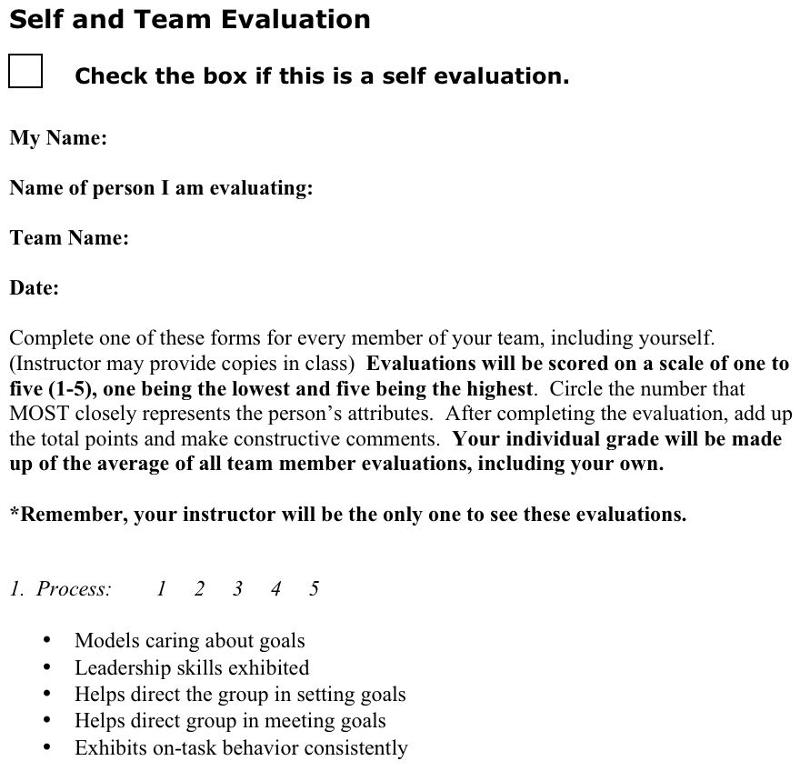Quality Control
Successful teams are willing to collectively review their output and processes to ensure that the final product or solution meets or exceeds the team goal. Evaluations are important in cooperative learning because they help to assess the effectiveness of both the group as a whole and the individual members.
Group Evaluation
 The Recorder is responsible for filling out the group evaluation form with input from the other members. There is space to record what the group did well, as well as areas that need improvement. These two areas focus on the group as a whole. For example, a response to an item asking what the group did well may be "finished ahead of time."
The Recorder is responsible for filling out the group evaluation form with input from the other members. There is space to record what the group did well, as well as areas that need improvement. These two areas focus on the group as a whole. For example, a response to an item asking what the group did well may be "finished ahead of time."
Another area of the group evaluation form asks the group to identify something each member did to increase group effectiveness. This adds an individual dimension to the group evaluation form because it helps members identify each other's strengths and provide positive feedback.
Individual Evaluations
Just as the group evaluation form helps to assess the effectiveness of the group as a whole, the individual evaluation is a way to measure the effectiveness of each member. Using an individual evaluation form, each member evaluates his or her own performance in the group.
Peer Evaluations
The third area of evaluation is peer evaluations. Each member of the group should have an opportunity to evaluate the individual performances of the other members of the group. These peer evaluations are often helpful in determining where the group is having problems as well as in determining the final grade for each individual. They can also help to motivate group members to meet their responsibilities to the group.


